Margaret Atwood, Linwood Barclay and Other Authors on Writing Your First Novel

From Margaret Atwood (above) to Linwood Barclay, a roster of Giller and Booker Prize winners, mystery masters and even a Nobel laureate offer advice on how to start your novel. Photo: Leonardo Cendamo/Getty Images
So your life is in lockdown thanks to the COVID-19 pandemic and you’ve decided to use this abundance of free time to pen that novel you always wanted to write. Fantastic. Well, that is, until you come face-to-face with that dreaded blank page staring back at you from the computer or notebook.
“Go ahead,” you can almost hear it whisper. “I dare you to write down your idea and see how ridiculous it reads.”
If that sort of insecurity sounds familiar, don’t worry. Crippling self-doubt is essentially a job requirement for writers. So congratulations — you’re in the club.
To help you get over that initial hump and get your story onto the page, we’ve mined Zoomer’s archive of interviews with Booker and Giller Prize winners, mystery masters and even a Nobel laureate to glean their best advice for first-time novelists.
Margaret Atwood, Kazuo Ishiguro, Ann-Marie MacDonald, Linden MacIntyre, Kathy Reichs, Louise Penny, Linwood Barclay and more — they’ve all overcome the blank page. And you can do the same.
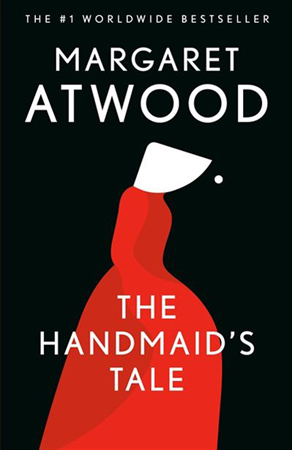
Margaret Atwood: “Your primary responsibility is to the work.”
Who better to ask for writing advice than Margaret Atwood? The 80-year-old has written a slew of modern classics and nabbed her share of major literary awards — including the Giller Prize and two Booker Prizes. During two different interviews, one in 2014 and one in 2016, Atwood offered advice and thoughts on everything from putting your best work forward to creating unlikable characters to choosing the proper editor. Hint: it’s not the person you wake up next to in the morning.
On advice for first-time writers: “I would say finish [writing] it before you think of anything else. And then give it to a reader, or readers, that you trust, who aren’t in the business, and say to them, ‘Did this hold your attention?’ Not your spouse — that’s a poison pill because they’re going to say either, ‘Well I think, actually, this is pretty terrible,’ and then you’re not going to speak to them for weeks. Or they’re going to say, ‘This is wonderful’ and you’re going to say, ‘You’re just saying that because it’s me.’ So somebody else at several removes. Then, when it is as good as you think it can be, and not until then, you can start looking for a publisher or an agent.
On creating unlikable characters: “You do not want the same qualities in a fictional character in a book that you would wish to have in your roommate. It would be freaking boring … We quite like to watch Richard III being bad. We quite like to watch the downfall of Macbeth. We quite like that King Lear’s two daughters behave so extremely badly and then get their comeuppance. And where would opera be without the villains?”
On the “art” of the short story: “I hate to be very, very minimalist, but stories are shorter [than novels],” she laughed. “So therefore it’s … more condensed. It’s going to affect how you arrange things and how close together they are, but any art form involves pattern. It involves rhythm and syncopation and repetition and variation. Any art form.”
Self-publishing is a viable option: “You will be investing in your own work but that is now a route that many people have gone. So online is your friend in that respect.”
Your responsibility is to the work: “If you’re writing anything or drawing anything or doing anything creative your primary responsibility is to the work. So make the work as good as you can make it and not until then do you go looking for a way to transfer it to readers or viewers in the outside world.”
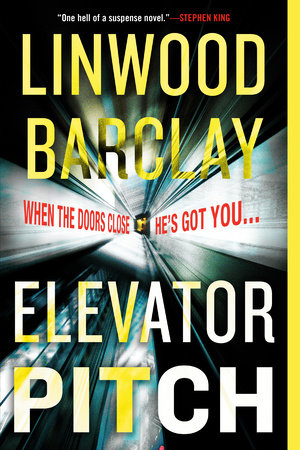
Linwood Barclay: “It’s like standing at the edge of a cold pool.”
Linwood Barclay’s been called “Canada’s Stephen King,” a former journalist and humour writer turned best-selling thriller novelist who’s books are beloved around the world. But when discussing his latest novel, Elevator Pitch, in an October 2019 interview with Zoomer, the 64-year-old didn’t sugar-coat the excruciating experience of beginning a novel.
“I think it’s like standing at the edge of a cold pool — the water’s cold and you just don’t want to jump in, and then you figure, ‘I’m going to do it’ and you jump in. And the first couple of seconds are horrendous and then you get used to it. I think that’s kind of what it’s like to start a book.”
Once you take the plunge, Barclay says, “Just start [writing] it. Don’t stare at a blank screen. You can always fix stuff that you didn’t like, but if there’s nothing there at all, then you don’t have anything to edit or fiddle with.”
He also told Zoomer in a separate interview that his years as a journalist killed any concept of “writer’s block” for him.
“You don’t get precious. None of this ‘I’ve got writer’s block’ or ‘The muse just hasn’t struck.’ When you spend more than 30 years in newspapers, you understand that writing is a job. It’s a great job, but it’s a job. So you sit yourself down in the morning and don’t call it quits until you have 2,000 words written. It’s work. Do teachers get teacher’s block? Do accountants get accountant’s block? Why should authors be so special?”
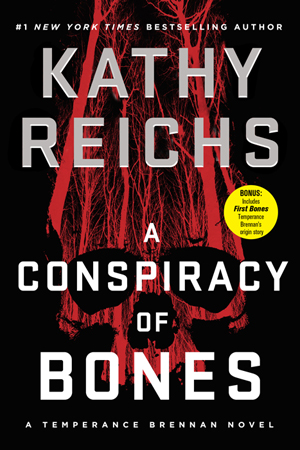
Kathy Reichs: “What would be valuable that I never did…”
Kathy Reichs — the best-selling mystery author whose novels have sold more than five million copies worldwide and inspired the hit TV series Bones — believes in just sitting down and putting words to the page. But she also knows that sometimes you need to find some outside support to help move the writing process along.
“Sit down and write, whatever form that takes — whether you keep a journal or outline a book or actually start writing the book,” she told Zoomer in a March 2020 interview about her new novel A Conspiracy of Bones. “Also, there are a lot of books out there that have been published on how to write a novel or how to write a mystery. It can’t hurt to read some of those. I think what would be valuable that I never did is you could join a writer’s group. I would think most towns would have one, and members of the group help each other, and they read each other’s material and give feedback on each other’s material. So that’s another thing. There are also courses that are offered at universities on writing fiction that you could take. So all of those things would offer you some training and some guidelines on how to do it.”
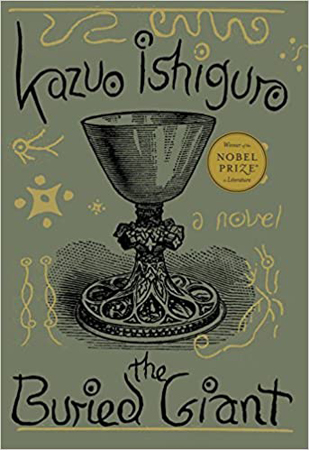
Kazuo Ishiguro: “I think it’s important to change and adapt.”
Japanese-born British novelist Kazuo Ishiguro, 65, is one of the most celebrated scribes in modern literature. He won the Booker Prize for his 1989 novel The Remains of the Day — the basis for the Oscar-nominated film of the same name — and in 2017 was awarded the Nobel Prize for Literature.
But in 2015, Zoomer spoke to Ishiguro about his most recent novel, The Buried Giant, and he discussed the importance of adapting one’s art with age — a lesson he gleaned from Canadian troubadour Leonard Cohen’s 2014 album Popular Problems.
“I was absolutely staggered by it, that a guy can do that at that age,” the author said. “He’s changed. He’s not trying to just be a kind of version of himself when he was younger … And so I think it’s important to change and adapt, both stylistically and thematically. I’m really interested these days in looking at late style, because I’m coming into my late style period.”
He added that the key, as an artist, that Cohen exemplified is that, “He’s moved on and he hasn’t tried to just do (things like he did) 30 years ago. He fully occupies where he is now and the work comes out of that. So I’m looking at these people who are maybe 20 years older than me and I’m trying to kind of not make the mistakes some of them have made and follow the great examples of some of the great artists.”
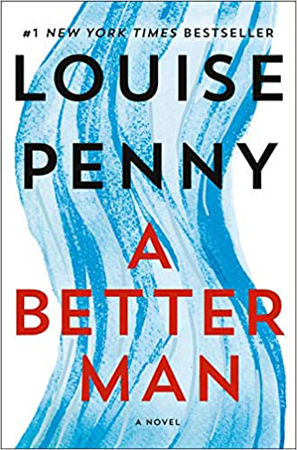
Louise Penny: “Read, read, read.”
Toronto-born mystery writer Louise Penny’s Chief Inspector Armand Gamache novels have earned her worldwide acclaim and some of the mystery genre’s highest accolades — including seven Agatha Awards, named after Agatha Christie, for best mystery novel — since she wrote her first novel 15 years ago. But when Zoomer asked for her writerly advice in 2015, the then-57-year-old suggested putting down the pen and picking up a book.
“My advice — it sounds stupid because I didn’t know how to go about it either — is a writer reads. Read, read, read. Whatever it is you’re going to write about, whether it’s crime fiction or it’s anything else, read as much as you can of great books in that field. And you’d be surprised how much you know.”
She also suggested taking courses, “not necessarily because writing can be taught. I think there’s certain things, mostly bad habits, can be untaught. But it gives you a structure and a discipline then that you have to have pages and it helps.”
And she also offered some words of wisdom strictly for the greying set. “I think that the older we are, the better we are at storytelling. I think a lot of older writers, the danger can be that they think their lives are fascinating and unique,” she laughed. “And they’re not necessarily either of those things. So … throw yourself in as elements of a character but try to make it more universal.”
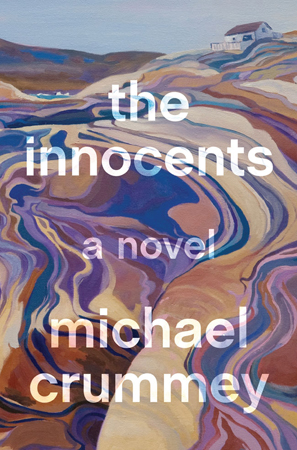
Michael Crummey: “Procrastination is my friend.”
Celebrated Newfoundland-born writer Michael Crummey, whose 2019 novel The Innocents became a finalist for the Giller and Rogers Writers’ Trust Prizes as well as the Governor General’s Literary Award, offered Zoomer a unique perspective on the writing craft. “About the writing process, I’ve finally figured out that procrastination is my friend. If I don’t waste time, nothing gets done.”
But when it comes to the best writing advice he ever received, he says it involves removing the stress of self-doubt: “Worrying about whether what you’re writing is any good in the end is just asking for trouble.”
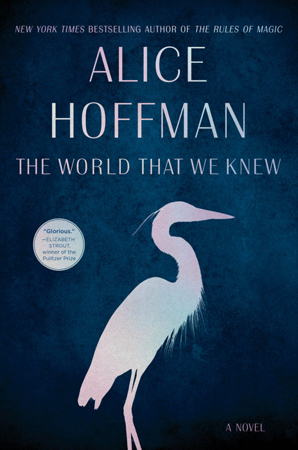
Alice Hoffman: “Write what you can imagine.”
American novelist Alice Hoffman, 68, is known for penning tales of the fantastical, like her most celebrated novel, Practical Magic, so it’s no surprise that she would offer a spin on the old axiom “write what you know.”
“Write what you can imagine,” she told Zoomer in 2019 when asked about the best writing advice she’d ever received.
But did it work?
“Thirty books later — yes. It gave me the freedom to write outside of my life. And I do believe that if you can feel it, you can write it.”
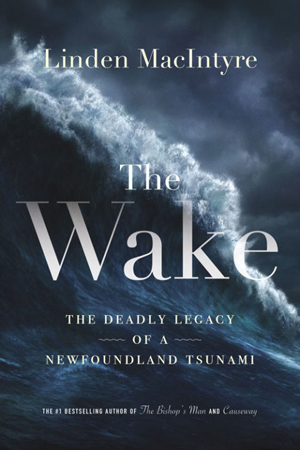
Linden MacIntyre: “The important part of writing is a process that goes on inside the author’s head.”
When discussing his latest book, The Wake, about a deadly tsunami that struck his home province of Newfoundland in 1929, Giller Prize-winner Linden MacIntyre noted he’d had the idea for the story in his head his whole life. So what, Zoomer asked, is the lesson for others who’ve spent much of their lives with a story but don’t know how to get started writing it?
“I believe the important part of writing is a process that goes on inside the author’s head and, in many cases, for a very long time,” he explained. “I would like to have started writing the book more than 50 years ago when my father was still alive. But I wouldn’t have known how to do it, because I didn’t understand the full significance of what I was hearing and seeing around me … I still didn’t understand that the passage of time enriches our experience and improves perspective.”
He added that, “At some point, the words will form and join together and deliver a considered account of our experiences and insights. So while I didn’t start to physically write the book when the experience was closer, I can see now that the creative process started long, long ago, and the writing started when it could and should have.”
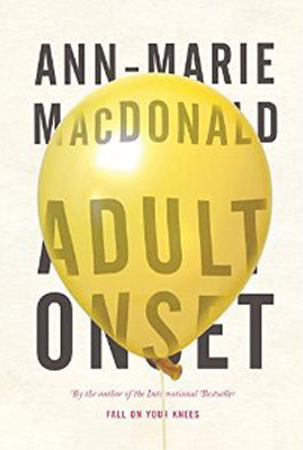
Ann-Marie MacDonald: “The ability to finish.”
Anne-Marie MacDonald, 61, knows what it’s like to feel insecure about one’s writing. However, the celebrated Canadian scribe, best known for her novels Fall On Your Knees (1996) and The Way the Crow Flies (2003) posited in an interview about her 2014 novel Adult Onset, that, “All of the standard self-doubts that come in are really just very sophisticated forms of procrastination because it’s so much easier not to write. And our demons and questions and doubts just become more sophisticated as we become better writers. So they don more and more ingenious masks and appear with greater and greater kind of dignity. But it really is just fear and procrastination.”
So what advice, then, did she offer for later-in-life first-time novelists?
“First of all, the great thing about literature and being a writer is that [if] you have your health and your faculties you can start anytime. You really just have to stay true to your vision and when you’re in the middle, don’t give up,” she said.
MacDonald added that, “in my experience, all of my writing projects have been most excruciatingly difficult when I knew I was midway through. At the end of the day, honestly, the difference is not in terms of who has certain kinds of gifts and who does not. The difference between a writer and someone who is not a writer is the ability to finish.”
RELATED:
Margaret Atwood At 80: Canada’s Queen of Letters Is (Still) At the Top of Her Game